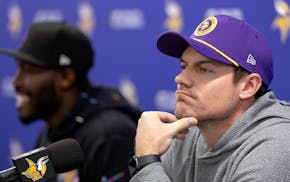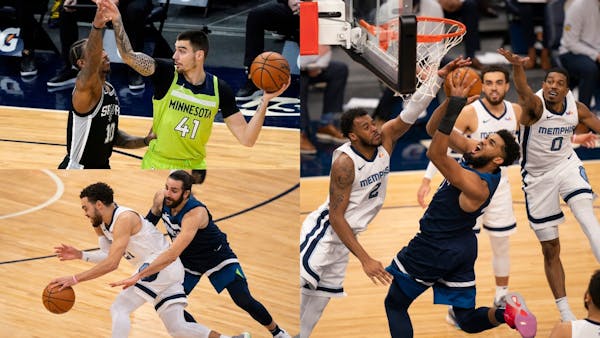Before training camps started around the NBA, ESPN, citing unnamed sources, reported that the Houston Rockets were "willing to get uncomfortable" when it came to carrying disgruntled guard James Harden on their roster into the season.
The sentiment was that the Houston front office was willing to put up with any public awkwardness that might stem from waiting to deal Harden, who had made a trade demand, until the right asking price came along from another team.
It sounded full of bluster and arrogance — and then over the last week players started speaking their minds and within 24 hours Harden was off to Brooklyn.
The Rockets dealt Harden as part of a complicated four-team trade that also involved Indiana and Cleveland and united Harden with former teammate Kevin Durant and Kyrie Irving to make for a potentially potent and combustible combination. The circumstances around how the trade went down underscored the notion that the NBA in 2021 is very much a player-driven league and that doesn't appear to be changing any time soon.
It accelerated after the Rockets lost Tuesday to the Lakers and Harden vented his frustration postgame like someone who's trying to end a relationship.
"I love this city. I've literally done everything I can," Harden told reporters. "This situation is crazy. It's something that, I don't think it can be fixed."
The next day, Harden's teammate DeMarcus Cousins weighed in, calling Harden "disrespectful" and taking him to task for his antics in trying to get traded. Those included holding out at the start of training camp and partying maskless with rapper Lil' Baby, causing him to isolate and undergo COVID testing upon return to the team, which resulted in missed practice time.
"We feel a certain type of way about some of his actions," Cousins told reporters. "This is the nasty part of the business that kind of gets swept under the rug. You deal with some of these things. When guys are in positions of being franchise players or whatever the case may be, it's usually sometimes a nasty breakup."
Not long after Cousins' comment, Harden was gone. Apparently, it had become too uncomfortable, in a hurry. Harden ended up getting what he wanted. The Rockets weren't beholden to trading him to Brooklyn, one of his desired destinations, but they did so anyway.
Just like Anthony Davis got his way two seasons ago when he forced his way to the Lakers and just like Kawhi Leonard got his way in getting the Clippers to trade for Paul George two offseasons ago. Those aren't the only examples of stars getting their way when it comes to manipulating the trade market.
Harden's saga played in some similar ways to how Jimmy Butler forced his way out of Minnesota. Butler didn't show up for training camp initially. When he did, he made life uncomfortable for the franchise and there were leaks to the media about how he had a "plan" to force the Wolves' hand to trade him.
The Wolves tried to put up with it initially until their on-court play suffered to the point they thought it best to move on. Butler, to his credit, never had teammates call him out publicly the way Cousins did with Harden.
But right or wrong, this is now the well-established playbook for stars to get their way. Leak your unhappiness to the media, don't show up for your contractually mandated obligations while suffering no financial repercussions for it, maybe play a few games while the team works out potential deals.
If you're still unhappy with the pace of negotiations, start using your media sessions as opportunities to speed the process. From that point of view, Harden went by the script and played his role perfectly.
Chris Hine covers the Timberwolves and the NBA for the Star Tribune. chris.hine@startribune.com
NFL to open academy in Australia to identify and develop young prospects

Duran, Correa hope to return during Twins' upcoming road trip

Vikings mock draft: seven rounds, eight picks and, yes, one quarterback

